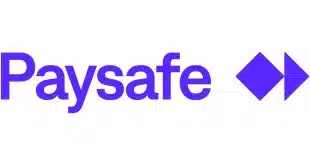All eyes in the payments business were riveted on Brooklyn earlier this month as lawyers wrangled in federal court over the proposed credit card interchange settlement. What many interested parties—including most observers in the courtroom that day–may have missed, however, is that the hearing brought to light for the first time a multimillion-dollar issue involving how merchants will claim their share of the settlement, if approved, and potentially affecting nearly one-third of the merchants who stand to benefit from the sprawling, 8-year-old litigation.
As the proceedings broke for lunch, lawyers huddled with Judge John Gleeson to discuss what may have seemed like a side issue: hundreds of thousands of notices that had recently gone out to merchants telling them a claim against the $6-billion-plus settlement pot would be filed on their behalf. The claims would be filed automatically—and fees and commissions deducted–unless the merchants took action to opt out of the service, which is offered by a Toledo, Ohio-based class-action claims specialist called Managed Care Advisory Group Inc.
By the time the conference ended, Gleeson had ordered MCAG and its cooperating merchant processors to stop sending the opt-out notices. He also asked both the MCAG group and counsel for the merchant class, which had objected to the notices, to file briefs on how to counter-act any confusion the notices may have caused. Those briefs were due on Friday.
A courtroom observer who overheard the conversation describes Gleeson’s tone toward the MCAG and processor lawyers as “scolding.” “I want what you're doing to stop,” Gleeson said, according to a court transcript. “No more of this. No more missives to [merchants] about claims against a settlement fund[,] about opting out[,] so the conduct that's complained of I'm ordering you to stop.”
To reach merchants, MCAG is working with independent sales organizations and merchant processors, including at least two major processors, Global Payments Inc. Atlanta, and Princeton, N.J.-based Heartland Payment Systems Inc. About 500,000 notices with the opt-out proviso had already gone out to merchants by Sept. 12, the date of the hearing, according to the transcript. While defending the opt-out procedure, Heartland’s attorney said during the conference with Gleeson the processor had not yet sent opt-out notices.
A lawyer for MCAG told Gleeson that, if MCAG and the processors were permitted to proceed, opt-out notices could potentially reach 30% of the merchant class in the case. Given that the class includes some 8 million mostly small and mid-size merchants, that would come to about 2.4 million businesses.
Should Gleeson give a final green light to the settlement, merchants will have to file claims to get their share of the cash. They may do this on their own or with assistance from the claims administrator, Beaverton, Ore.-based Epiq Class Action & Claims Solutions Inc. Or they may choose to work with a third-party service to have claims filed for them, though class counsel argues these filings should be done only with the merchant’s explicit authorization, not with an opt-out proviso.
In documents filed with the court, class counsel says the opt-out notices could confuse merchants and lead to needless and expensive duplication of filings. They also argue that, owing to high rates of attrition in merchant acquiring, the processors aren’t likely to have records extending back eight years to support a claim.
Court filings from MCAG, Heartland, and Global Payments counter that the opt-out notices are standard practice when notifying merchants of changes to processing agreements. To buttress their contention that opting out is no great burden, Global Payments’ lawyer told Gleeson during the conference that some 3,650 merchants had already refused the service. The processors and MCAG also say the opt-outs are the most likely method to boost merchant participation in the settlement.
The processors and MCAG also stand to benefit from the opt-out program. With higher merchant participation, they will earn more filing fees and commissions, which could range from 10% to 25% of amounts recovered. Global Payments, for example, could potentially reap $15 million from a $59.95 fee on claims from some 250,000 merchants it serves directly, according to court documents filed by class counsel.
Global Payments refused to comment for this story. A spokesperson for Heartland did not return a call from Digital Transactions News. Attorneys involved with MCAG and class counsel either did not return calls or could not be reached.
A key fact often lost sight of in this mini-case within the case is that Judge Gleeson has not yet given final approval to the settlement, and could be months away from a decision on the matter. He granted preliminary approval in November, following an historic agreement the previous July between merchants on the one hand and Visa Inc., MasterCard Inc., and a handful of major banks, on the other. Indeed, part of the purpose of the Sept. 12 hearing was to provide a forum to large merchants that argue the settlement should be scrapped.
Under the terms of the proposed settlement, merchants won $1.2 billion in temporary interchange relief and a relaxation of certain network rules, notably one banning surcharges, in addition to $6.05 billion in cash. Still, some 7,800 mostly large retail companies have opted out of the settlement, claiming the deal does nothing to make network interchange fair and negotiable.







